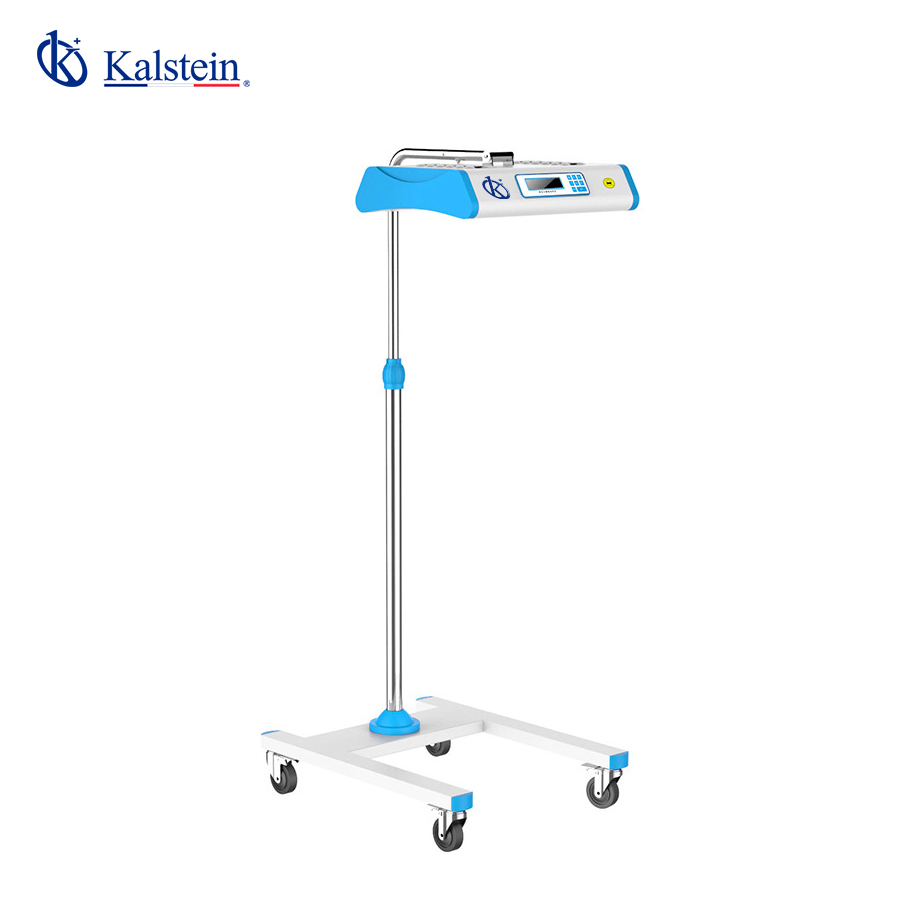Phototherapy or light therapy is the reference treatment for hyperbilirubinemia in babies, known as neonatal hyperbilirubinemia, for which fluorescent white light is frequently used, although blue light can also be used, with a wavelength of 425 to 475 nm, being this one more effective for cases of intensive phototherapy.
This technique is indicated in cases where there is an abnormal increase in bilirubin concentration and always by medical order. It allows the metabolism of unconjugated bilirubin to bilirubin isomers, allowing its elimination through urine and feces. It is currently considered the most widely used, effective, economical and reducing the need for exchange transfusion.
Phototherapy in babies
Phototherapy is the definitive treatment of neonatal hyperbilirubinemia and prevents Kernicterus, based on the use of electromagnetic radiation (light) to reduce bilirubin levels in blood, using the properties of light, since when light rays affect the skin and capillaries allows the transformation of bilirubin into water-soluble bilirubin photoisomers that are then excreted more easily in feces and urine, without the need to conjugate in the liver, thus producing a decrease in bilirubin blood, and therefore disappearance neonatal jaundice, a condition that refers to yellowing of skin and mucous membranes.
It consists of placing a light at a distance of 30-40 cm from the naked body surface of the baby previous placement of radiopaque glasses and removal of any cream or lotion of the skin. Phototherapy units are commonly used and generally consist of 4 tubes of blue light and 2 tubes of white light. The blue ones are placed in the center and the white ones on the sides. These phototherapy lamps are fluorescent and LED bulbs.
When does a baby need phototherapy?
Phototherapy allows to approach and treat neonatal jaundice safely, innocuously, easily and with the achievement of excellent results. A baby needs phototherapy when:
- Jaundice appears within the first 24 hours of life, after the first week of life, or persists after 2 weeks.
- Total serum bilirubin increases by more than 5 mg/dL per day.
- Total serum bilirubin is greater than 18 mg/dL.
- The newborn shows signs or symptoms of a serious illness.
Because a baby needs phototherapy?
Neonatal hyperbilirubinemia is a clinical picture characterized by pathological levels of bilirubin in the blood, whose early detection is essential to avoid complications caused by the neurotoxicity of indirect or unconjugated bilirubin, such as the Kernicterus pathology that causes atetoid cerebral palsy and hearing loss, visual, dental problems, and intellectual disabilities.
Therefore, timely medical intervention is essential, and for this, knowledge of adverse effects and appropriate care during phototherapy is required to minimize complications as soon as possible. Currently, phototherapy is considered a safe method without known long-term effects. These side effects mentioned above disappear following discontinuation of treatment, although phototherapy will always be performed for a justified cause and both excess duration and unnecessary use will be avoided.
What does Kalstein offer you?
Kalstein is a company MANUFACTURER of medical and laboratory equipment of the highest quality and the best technology at the best PRICES in the market, so you can make your PURCHASE with us, knowing that you have the service and advice of a company specialized in the field and committed to provide you with safe, economical and effective options for the performance of your functions in the right way. This time we present our Child bilirubin phototherapy unit YR02194. This equipment has the following characteristics:
- The unit has a long life span providing 20,000 to 30,000 hours of light therapy.
- LED fluorescent lamp as radiant elements of phototherapy.
- The curing angle of the lamp can be adjusted horizontally.
- The height of the lamp head can be adjusted.
- The stainless steel bracket can be adjusted.
- The wheels can be locked.
- Timer to record the phototherapy operation.
- Widely applicable in all hospitals and clinics and optimized for babies with jaundice.
For more information we invite you to take a look at: HERE

